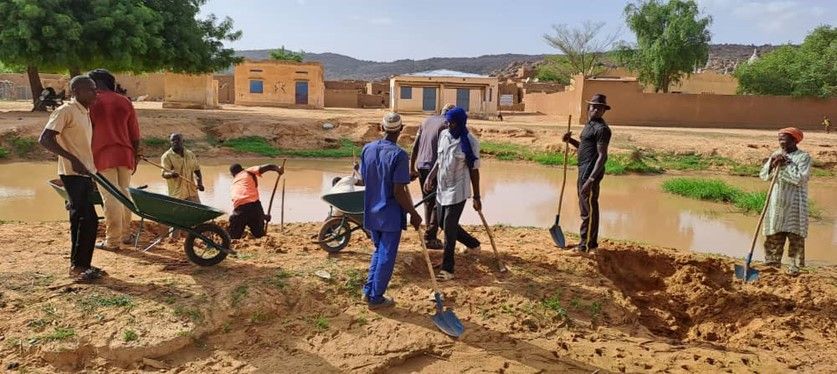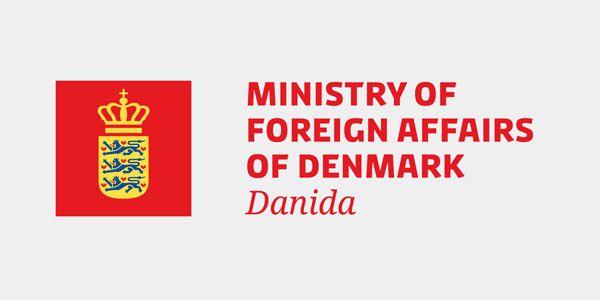The Issue
Local communities across the regions of Mopti, Bankass, Douentza, Niafunké and Timbuktu in Mali largely depend on agriculture, livestock breeding and fishing, these activities being largely dependent (and exposed to) changing climatic conditions, thus increasing also their vulnerability. Increasingly frequent droughts also have a major impact on crop harvest, whilst climate change also significantly impacts on local ecosystems and availability of natural resources. These dynamics, especially in a context already affected by armed conflict, fuel intra-community violence, and tensions over scarce resources and food insecurity. As the security context in the Centre and North of Mali remains volatile, military operations and military confrontations between regular armed forces and various armed groups significantly impact on civilians, leading to increasing population displacements.
The Project
The project aims to strengthen social cohesion and improve the socio-economic and environmental resilience of communities exposed to the compounded effects of violent conflicts and climate change-related risks and hazards in the Centre and North of Mali. The project specifically focuses on integrating social cohesion and community resilience considerations across both emergency response and longer-term sustainable community initiatives. Through activities linked to environmental protection, peacebuilding, and income-generating activities, are enabling women to be included in conflict prevention mechanism and have an impact at community level.
The Change
Building on the results of its previous phase, the project maintains an integrated and multidimensional approach, seeking from a nexus perspective to:
- Improve the peaceful coexistence and socio-environmental resilience of communities most exposed to the risks of community conflict and the effects of climate change in the cercles of Bankass, Douentza, Niafounké and Goudam through the partner FEJEDENOM;
- Promote sustainable natural resource management and contribute to the development of inclusive and resilient livelihoods for target communities vis-à-vis conflict- and climate-change-induced stressors;
- Improve the effectiveness of emergency humanitarian response within the Rapid Response Mechanism (RRM) system through support to local community-led ‘pre-RRM’ response initiatives adapted to their more urgent needs during a crisis (ex. Immediate response to population displacements).

The Results
The results for supporting community led-response assistance during the first phase of the project show an improvement of living condition of IDPs and Host Communities, resilience has been developed within households through micro projects, and social cohesion improvement. To realise micro projects, community action plans have been implemented to analyse the community dynamics. Micro-projects are a peace-building factor, helping to improve community resilience through the creation of income-generating activities, and providing assistance with farm work, etc.
Cash For Work
Cash For Work is a short-term programme that aims to give people an income during or after a humanitarian crisis, which allows people to purchase food and other basic necessities.
Partner
FEJEDENOM (Femmes, Jeunesse et Développement au Nord Mali).
Thematic Relevance
Through pre-RRM activities, support to local initiatives along with green IGA (cash for work), DCA works to provide and efficient, safe, and participative humanitarian and development responses. The project promotes the involvement of women in strengthening social cohesion, resilience and local adaptive capacities. In addition, 40 beneficiaries will be directly targeted for green IGAs and 60 beneficiaries for Cash For Work.
About the project
Full title: Active Participation in Economic Resilience and Environmental and Social Development, phases I + II
Area of Intervention: Regions of Bandiagara, Douentza, Mopti and Timbuktu
Period: Phase I – 2023, Phase II, 2024.
Partner: FEJEDENOM
Amount: Phase I – 6,527,077 DKK. Phase II – 661,000 DKK.
Number of people reached: 40,125 direct beneficiaries and 200,625 indirect beneficiaries in the first phase of the project (phase I). Phase II will be completed in 2024.
Donor: DANIDA


